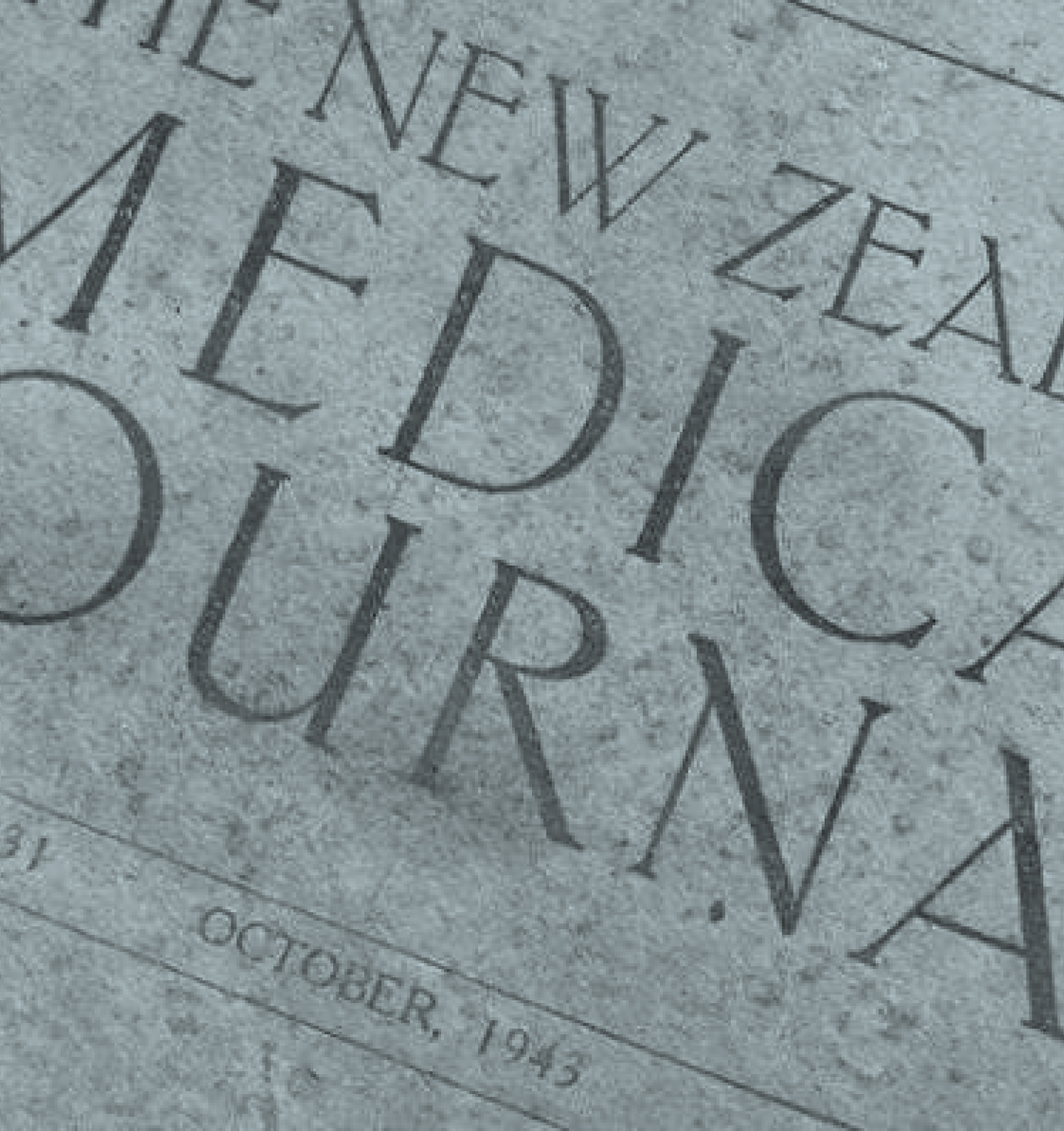100 YEARS AGO IN THE NZMJ
Vol. 136 No. 1577 |
The Public Hospitals in New Zealand
The public hospital system in New Zealand has been the subject of investigation by various visitors, both lay and medical, and, on the whole has been commended, mainly, we think, for the reason that the financial stability of the hospitals is assured.
Full article available to subscribers
NZMJ, 1923
The public hospital system in New Zealand has been the subject of investigation by various visitors, both lay and medical, and, on the whole has been commended, mainly, we think, for the reason that the financial stability of the hospitals is assured. This is accomplished by the simple expedient of a small sum in arithmetic whereby a sufficient rate is levied upon ratepayers to meet the immediate and ever-increasing cost of hospitals. There can be no financial deficit. The ratepayers contribute the largest share, the Government almost as much, the patients’ fees commonly average fifteen to twenty per cent. of the total amount, and voluntary contributions and legacies bring up the rear. Private benevolence is a tender plant that does not flourish in the chilly atmosphere of a finance based on Government grants and local body rates. It is finance based on Government grants and local body rates. It is evident that whatever may be said about the financial edifice of the New Zealand public hospitals as regards the super-structure, the foundation is strong enough. All taxpayers, Atlas-like, carry the hospitals on their backs.
Yet our hospitals are not community hospitals like the Canadian and American hospitals. While legally our hospitals are open to rich and poor alike, the internal arrangements are such that the patients, with few exceptions, belong to the same social class that is served by the voluntary hospitals in England. No doubt tradition and sentiment are factors in producing this result, but the fact remains that the New Zealand hospitals, for which all classes pay, are a benefit almost only to the comparative poor. The New Zealand Branch of the British Medical Association is in favour of the establishment of private wards at the public hospitals to extend the usefulness of these institutions to a wider, and equally deserving, section of the public.
Since the foundation of hospitals in New Zealand the medical profession has given honorary service worth some millions of pounds, but has no share in control. There is a tendency to gradually dispense with the services of honorary staffs, and the time does not seem far off when honorary staffs will be as extinct as the moa, except in the four chief cities of the Dominion. Now the medical side of hospital work is more important than the financial side, and the medical profession is very far from being satisfied with the public holiday system of New Zealand. It is not sufficient to say “Lo, we have not the financial troubles of voluntary hospitals; our finance is assured. Behold and Admire,” when the medical staffing of the hospitals is anomalous, and the policy on which it is based is wavering and undefined. If the hospitals are mainly to be staffed with whole-time stipendiary medical officers, the standard of medical practice throughout the whole of New Zealand will be lowered. The public will be the sufferers, both in private and in hospital practice, by this lowering of professional efficiency. The medical profession does not want to provoke a crisis, for the profession throughout the whole history of public hospitals in New Zealand has never consulted its own interests or failed to subordinate its own just and reasonable claims, but it is now time to review the whole position and for the Legislature to define the relation of hospitals to the medical profession. We believe in the necessity for part-time paid visiting staffs combining private and hospital practice. In institutions, support almost entirely by public funds and making a charge of three guineas a week for maintenance, although, of course, this charge is seldom paid, it is absurd to expect the profession to continue to give honorary service.
Another reform that it is overdue is to give the medical staffs reasonable representation on the Boards of Management of the hospitals. If this had been done years ago the standard of hospital practice would have been raised, as has been accomplished in America, and, as we have already emphasized, the standard of practice outside the hospitals depends mainly on the standard of practice inside hospitals, and the public should understand this, even if the Government does not.
In conclusion, it is evident to doctors, who, it is reasonable to suppose, are experts on the hospital question, that apart from finance the hospital system of New Zealand is no system at all, but merely the result of opportunism and devoid of settled principles. How long this is to continue is entirely in the hands of the Minister of Health, and he has any other matters beside Health to attend to, and as Mr. Sastri pointed out, a politician must ask himself, not only is reform necessary but is it expedient, is it opportune, and is it popular?
